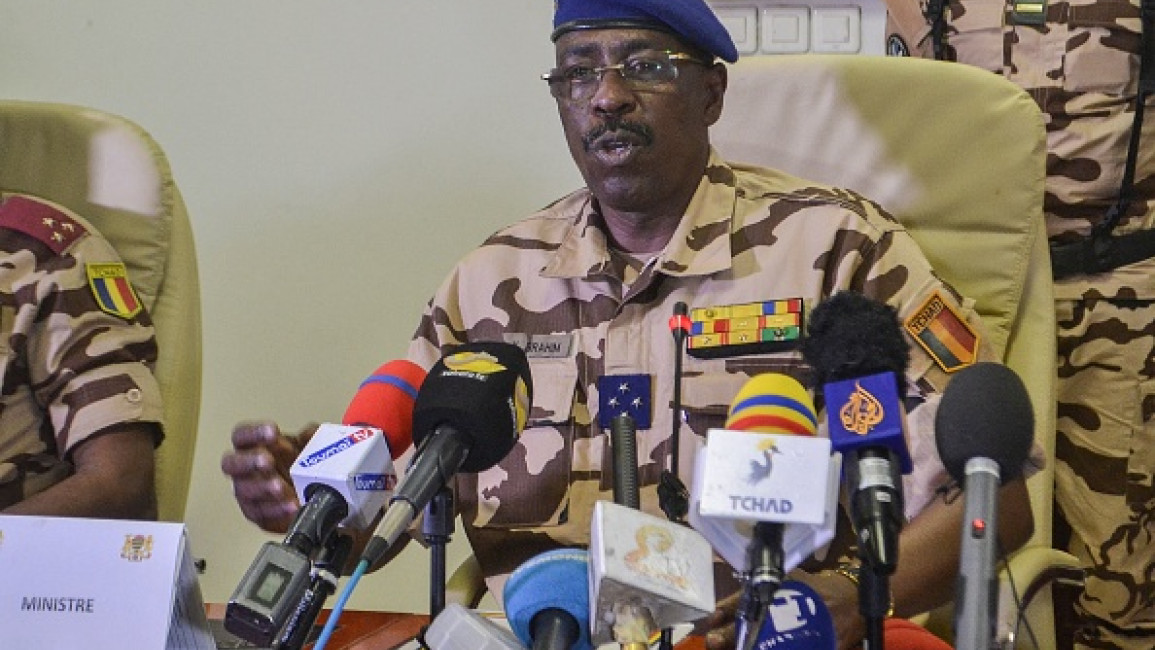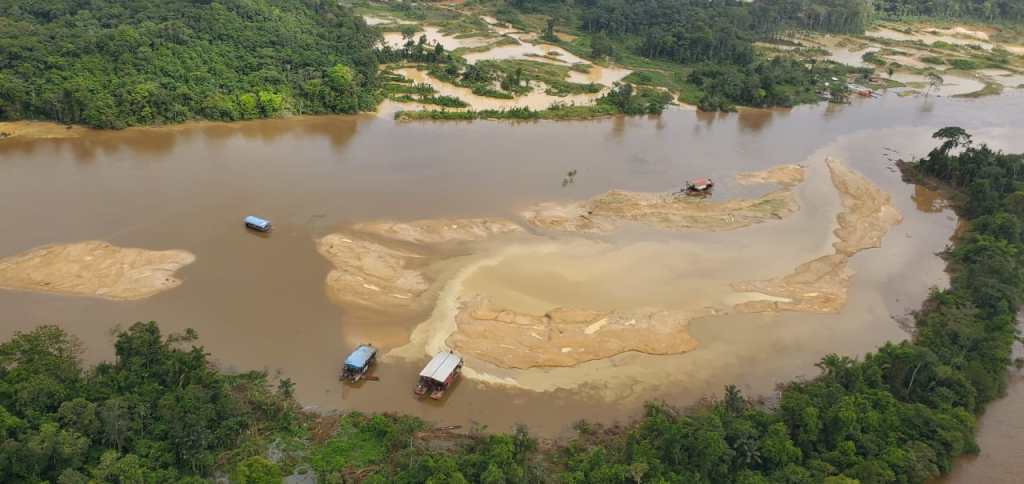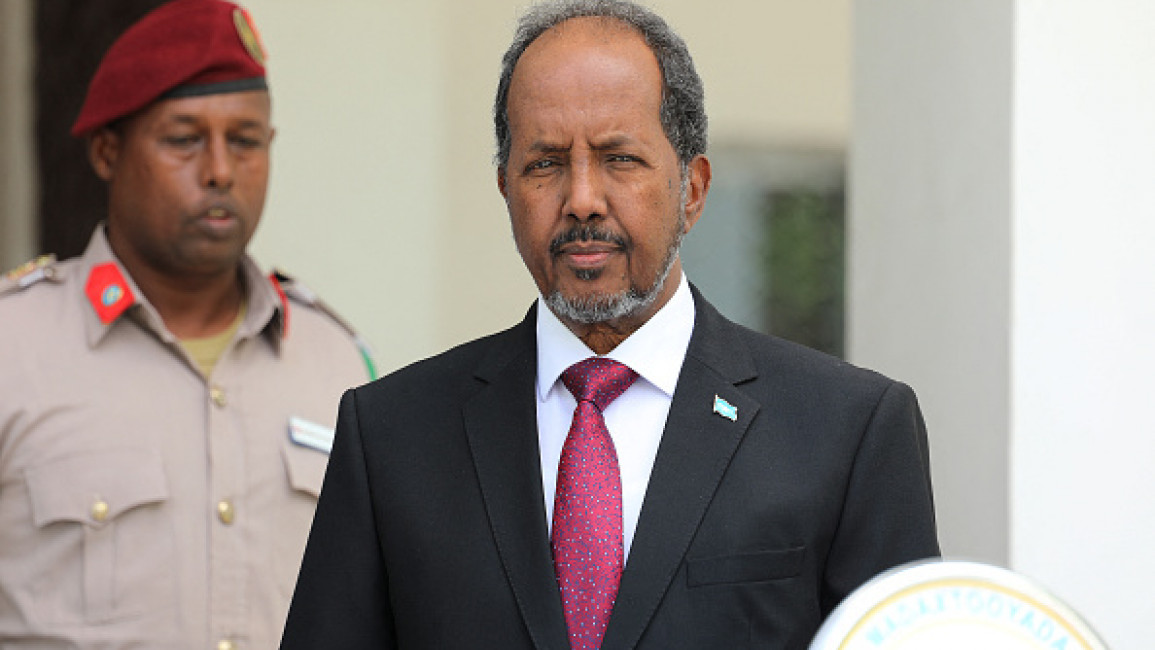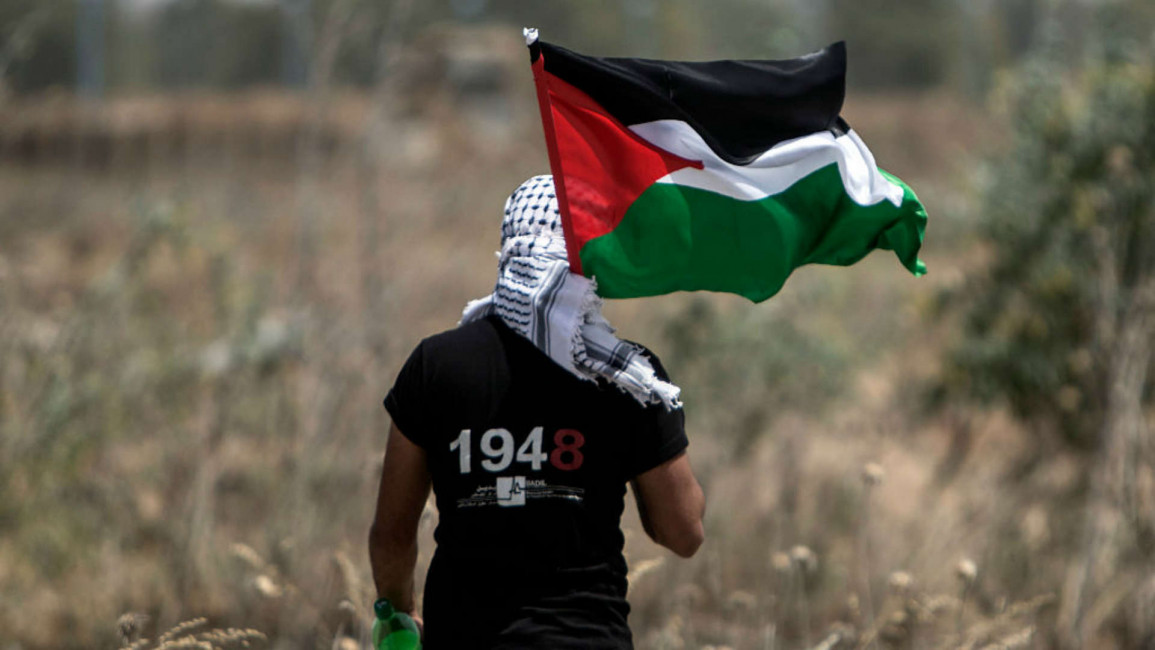Azad Essa
26 May 2022
As public calls for a reckoning with the gun lobby increase, there is no accompanying discussion on the ways in which the US is exporting violence elsewhere

A woman cries as she attends the vigil for the victims of the mass shooting at Robb Elementary School in Uvalde, Texas on 25 May 2022 (AFP)
At this time, we don’t know why the 18-year-old gunman who killed 19 children and two adults in a mass shooting at a south Texas primary school did it.
And even if, after authorities comb through his personal belongings, devices and social media history, we may never fully know what led him to carry out this carnage. All we know is that Tuesday's massacre is likely to go down as the second deadliest school shooting in the country's history after Sandy Hook in 2012.
For families in the US, the uncanny familiarity of the latest tragedy is all but normalised
This time, a lone gunman strapped in body armour, armed with a handgun and an AR-15-style semi-automatic rifle, entered the Robb Elementary school in Uvalde, Texas, and slaughtered 21 victims. The military-grade ammunition caused such immense devastation that some victims were unrecognisable. Authorities were forced to ask parents for DNA samples to help identify the children.
For families in the US, the uncanny familiarity of the latest tragedy is all but normalised. Across the US, parents gripped onto their young ones and gasped as their screens rolled over one update after another.
Just days earlier, a self-identified white supremacist entered a supermarket and killed 10 Black people in Buffalo, New York. A day later a person was killed and several injured in California when a gunman entered a church used by Taiwanese Americans and opened fire.
Last month, a man in his early 60s unleashed a volley of gunshots on New York City subway, injuring 23 people.
Americans recognise that each time their children go to school, or they go to the local shopping mall, church or synagogue, they play with their lives. They also know they can’t do much about it.
Mass protests
America has been here before.
Just over four years ago, a gunman entered the Marjory Stoneman Douglas High School in an affluent suburb in Florida and murdered 17 students.
All conversations about gun violence in America continues to sidestep arguably the biggest issue of them all: the political economy of the arms industry in the country
The shootings mobilised young Americans with more than a million people taking to the streets in several hundred rallies across the country to demand gun controls. The public actions drew support from corporations and politicians; A-list celebrities like Oprah Winfrey, George Clooney and Steven Spielberg donated hundreds of thousands of dollars to the rallies. Before long, it had become a corporate carnival.
"The March for Our Lives (MFOL) was a massive outcry against extreme violence delivered with a mix of pop sentiment, corporate cooperation, and an awareness of the socioeconomic privilege that allows certain voices to be heard louder than others," the New Yorker wrote, adding: "The student leaders were grateful, thanking their celebrity donors and corporate sponsors on social media, posing in front of the little blue bird at Twitter’s Washington offices."
Their good intentions notwithstanding, their absorption into the American mainstream was an attempt to commodify their message. It was also emblematic of a movement that had derived its legitimacy through its proximity to power and influence.

The MFOL movement suggested several changes to gun laws, including a ban on semi-automatic weapons, the implementation of universal background checks and surveillance of gun sales, moving the legal age to purchase guns to 21; and ending gun shows and second-hand sales.
In 2021, it added several important elements to its policy agenda, including a more serious articulation of state-sanctioned police violence in a bid to become a more intersectional movement.
But like almost all conversations about gun violence in America, it continues to sidestep arguably the biggest issue of them all: the political economy of the arms industry in the country.
Stunning hypocrisy
The US government spends more money on arms than any other country. In 2021, it spent $801bn, or 3.5 percent of its GDP.
"The increase in R&D spending over the decade 2012–21 suggests that the United States is focusing more on next-generation technologies," said Alexandra Marksteiner, a researcher with Stockholm International Peace Research Institute (SIPRI) in a press release last month. "The US government has repeatedly stressed the need to preserve the US military’s technological edge over strategic competitors."
SIPRI has repeatedly demonstrated that not only is Washington the biggest procurer of arms, it is also the world's largest arms exporter. Between 2017-2021, the US was responsible for 39 percent of all arms deliveries around the world.
This is two times more than Russia and close to 10 times as much as China, making their way to around 103 countries, many of whom are led by either corrupt, oppressive regimes or war criminals.
In other words, as frustration and pressure builds on politicians to make meaningful changes to American gun laws, the American military-industrial complex continues to expand abroad.
And as the public calls for a reckoning with the gun lobby, there is no accompanying discussion on the ways in which America is exporting violence elsewhere. Instead, the debate is almost always reduced to dogmatic and fundamentalist politicians in the pockets of the gun lobby.
It is odd that little to none of these attacks on schools, churches, malls or department stores have led anti-gun activists to openly question American militarism.
This is a society that fawns over its troops who can kill and murder civilians and children by "mistake", run torture camps, deploy secret drone campaigns that incinerate targets on the basis of "safeguarding American interests", but themselves expect to be treated with the utmost care and dignity. This is also a society that calls for gun controls while its military interferes with the domestic affairs of other nations through its 750 military bases in 80 countries around the world.
The hypocrisy is stunning.
Solving the epidemic
In the first five months of 2022, there have been reportedly over 200 mass shootings, including 27 school shootings, in the US. This is absurd. No other country in the world endures such ignominy.

The American republic of white supremacy Read More »
The rhythm and geographic spread of the violence has been so unpredictably random and grotesque in scale that there are families, particularly those belonging to minority groups, who are genuinely afraid of what the next day will bring for their loved ones.
Schools have become death traps.
And with the country growing increasingly polarised, and post-pandemic induced inequality, mental illness and racist conspiracy theories on the rise, the easy availability of guns makes America especially dangerous.
But solving this epidemic will require more than implementing gun controls. It requires a reckoning with the American project, the one that institutionalised violence in the name of building a homeland and later, an empire.
The views expressed in this article belong to the author and do not necessarily reflect the editorial policy of Middle East Eye.









